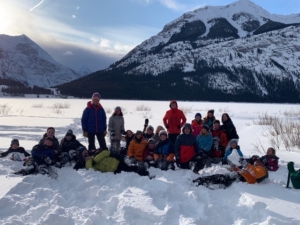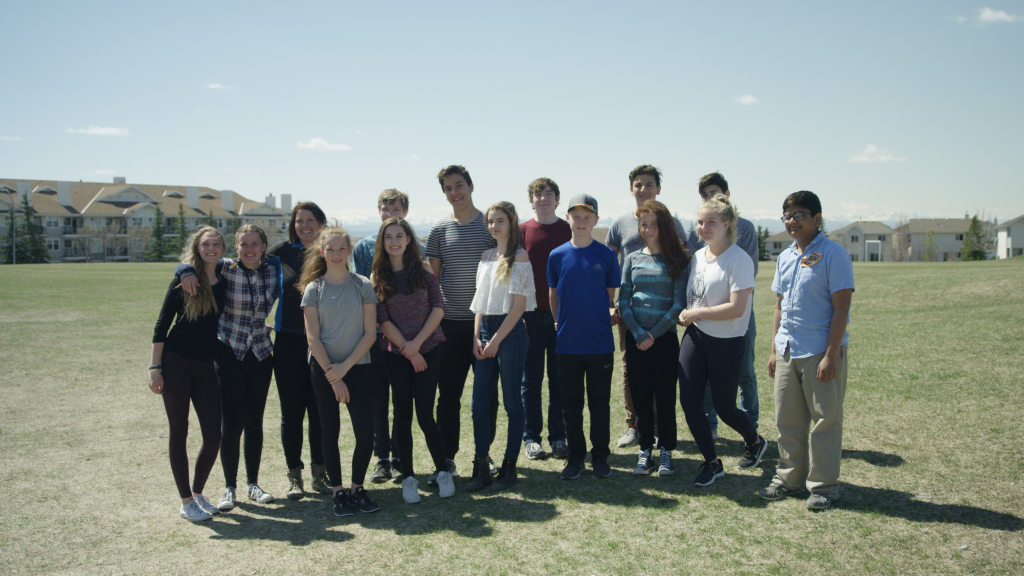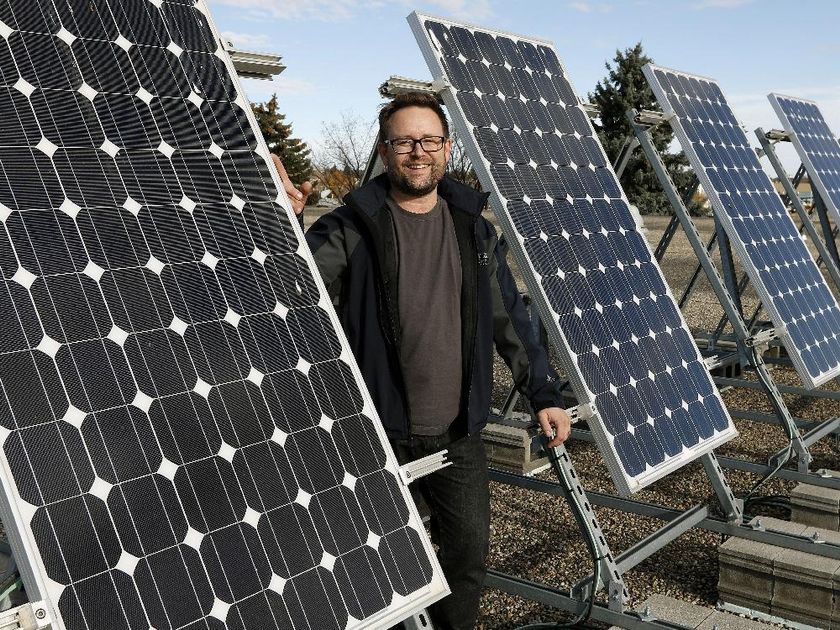
In Australia, some schools include semesters spent at remote outdoor campuses where hiking and kayaking are regular features of the curriculum.
When Nancy Pollard returned after a few years teaching in the land down under, she wanted to bring that style of education to Canada.
“I just thought we have to make this happen,” Pollard says.
“There has to be a ...
EcoVision has developed many activities over the last 12 years, including:
6.0kW solar project including a portable solar module.
Geodesic energy-efficient tropical greenhouse with 4 renewable energy systems.
Commercial aquaponics system raising tilapia fish for consumption.
2 acre garden with 125 fruit trees, 50 raised vegetable beds and potato, squash, garlic patches.
Outdoor classroom with 10 picnic tables, bat houses, bird houses.
Beekeeping Program with a bee apiary containing ...
 Many schools have outdoor courses or one-time camp experiences, but Calgary’s Arbour Lake School goes further with its Environmental Wilderness and Outdoor Club (EWOC). Operating as an option class with lunchtime meetups, EWOC’s grade 6-9 members take part in outdoor adventures, action projects and regular environmental learning opportunities.
Many schools have outdoor courses or one-time camp experiences, but Calgary’s Arbour Lake School goes further with its Environmental Wilderness and Outdoor Club (EWOC). Operating as an option class with lunchtime meetups, EWOC’s grade 6-9 members take part in outdoor adventures, action projects and regular environmental learning opportunities.
After attending the 2017 CAWST (Centre for Affordable Water and Sanitation Technology) Youth Wavemakers Summit, EWOC members were inspired ...
 If there’s an example of taking the classroom out into the real world, Innovate has to be it. In fact, there’s no classroom at all with this unique program. Instead, Edmonton high school students host and attend career fairs on urban agriculture, create gym-sized maps to understand the migration routes of bears, and install solar panels on school rooftops.
If there’s an example of taking the classroom out into the real world, Innovate has to be it. In fact, there’s no classroom at all with this unique program. Instead, Edmonton high school students host and attend career fairs on urban agriculture, create gym-sized maps to understand the migration routes of bears, and install solar panels on school rooftops.
Teacher Aaron Dublenko works with students and teachers ...
For the past six years, Aspen Heights MicroSociety (AHM) has embarked on a mission to transform their school and community through environmental Initiatives and projects with the students as the driving force behind their projects.
Aspen Heights Microsociety projects include: exploring their local watershed by raising and releasing of trout in a local pond, developing a recycling program that includes paper; cardboard, batteries, ...
Over Kitty’s 28 years of teaching, she has been dedicated to inspiring students to become caring and capable environmental citizens. She is a four-time provincial winner of the BP A+ for Energy Award, winning multiple grants to help Ecole Dickinsfield School champion environmental stewardship and conservation. She supported Fort McMurray’s Single-Use Bag Ban dressed in 500 plastic bags, encourages Waste Free Lunches, helps student Wormologists tend the school’s 20,000 red ...
Through their MicroSociety Program, Aspen Heights Elementary School has been diligently working to provide their students with the Ultimate Science Learning Experience. Their Indoor Science Classroom, in conjunction with their Worm Wranglers business venture, has placed an emphasis on recycling and education for their students. Their Bottle Depot is run by their students (K to 5) and is sponsored by the Alberta Bottle Depot Association. Students also take ...
According to Cree legend, “Leaders will be those whose actions speak the loudest, the ones that have demonstrated wisdom and courage and have proven that they work for the benefit of all.” Named after the First Nations’ legend of the leaders who will come to restore the health of the Earth, the Clandonald School Warriors of the Rainbow have been recycling paper and beverage containers, helping ...
The TD Learning Naturally Program is a corporately-sponsored environmental education program for economically disadvantaged students. In 2012, the program brought 4,887 students from 34 schools across Calgary to Fish Creek Provincial Park to participate in curriculum-related fieldtrips. The TD Learning Naturally Program sparks curiosity about science and nature in their participants, supporting youth who do not normally have the opportunity to visit a natural park to have an unforgettable nature-based ...
The Student Led Initiatives for Sustainable Education (SLISE) program inspires students to engage as responsible citizens in creating a sustainable environment. Based on the United Nations concept of E.S.D. (education for sustainable development), SLISE is a student-led program that fosters a culture in which young citizens become agents of change, creating innovative, sustainable environment projects in a real-world context with visible, measurable, empowering results. The teacher-leader, Aaron Dublenko, uses his ...

 Many schools have outdoor courses or one-time camp experiences, but Calgary’s Arbour Lake School goes further with its Environmental Wilderness and Outdoor Club (EWOC). Operating as an option class with lunchtime meetups, EWOC’s grade 6-9 members take part in outdoor adventures, action projects and regular environmental learning opportunities.
Many schools have outdoor courses or one-time camp experiences, but Calgary’s Arbour Lake School goes further with its Environmental Wilderness and Outdoor Club (EWOC). Operating as an option class with lunchtime meetups, EWOC’s grade 6-9 members take part in outdoor adventures, action projects and regular environmental learning opportunities. If there’s an example of taking the classroom out into the real world, Innovate has to be it. In fact, there’s no classroom at all with this unique program. Instead, Edmonton high school students host and attend career fairs on urban agriculture, create gym-sized maps to understand the migration routes of bears, and install solar panels on school rooftops.
If there’s an example of taking the classroom out into the real world, Innovate has to be it. In fact, there’s no classroom at all with this unique program. Instead, Edmonton high school students host and attend career fairs on urban agriculture, create gym-sized maps to understand the migration routes of bears, and install solar panels on school rooftops.